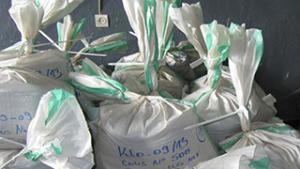 Revision of the DRC’s 2002 mining code was concluded by parliament in late January, and signed into law by President Kabila on 9th March 2018 despite intense lobbying by mining companies such as Glencore. The new code introduces various major fiscal and regulatory reforms, including changes to royalty rates, requirements for state ownership share, and an exemption for 10 years for licence holders to comply with changes. The revision has been under discussion since 2012 but stalled due to the commodity price slump experienced between 2014 to 2017. Large and small producers will now be contributing more to the government, with royalties on base metals increased from 2% to 3.5%, on gold from 2.5% to 3.5% and for any metal determined to be a ‘strategic minerals’ vital to DRC’s economic future, up to 10%.
Revision of the DRC’s 2002 mining code was concluded by parliament in late January, and signed into law by President Kabila on 9th March 2018 despite intense lobbying by mining companies such as Glencore. The new code introduces various major fiscal and regulatory reforms, including changes to royalty rates, requirements for state ownership share, and an exemption for 10 years for licence holders to comply with changes. The revision has been under discussion since 2012 but stalled due to the commodity price slump experienced between 2014 to 2017. Large and small producers will now be contributing more to the government, with royalties on base metals increased from 2% to 3.5%, on gold from 2.5% to 3.5% and for any metal determined to be a ‘strategic minerals’ vital to DRC’s economic future, up to 10%.
While the Prime Ministers’ office is yet to formally clarify which metals will be considered ‘strategic’ it appears that tin and tungsten will remain as base metals with royalties at 3.5%, while tantalum and cobalt are a likely candidates for the ‘strategic minerals’ list with royalty increased to 10%. Such a move would certainly increase challenges of implementing traceability in the DRC. Sudden implementation of a royalty change in mid-2017 for all 3T minerals from artisanal mines from 1% to 10% halted all exports for several months but was postponed pending this final revision of the new mining code.
The debate over the mining code has also led to a rift between companies and the Chamber of Mines – a subcommittee of the Fédération des Entreprises du Congo (FEC). The FEC is headed by the chairman of state-owned mining company Gécamines SA which supports the reforms and who is now inviting mining companies to renegotiate contracts and joint ventures following the promulgation of the law. Other key changes including a doubling in the governments free share of mining projects to 10%, a reduction on the period during which contract stability is guaranteed down to five years, and a new ‘supertax’ if commodity prices rise above certain levels. A 30-day window for mining companies to further discuss closes on April 14 although a proposal to pay the government more if the 10 year exemptions to change remained were already rejected by the Minister of Mines. Case-by-case company negotiations have already been criticised for lack of transparency by Global Witness who also called for strengthening of the conflict of interest clauses to limit members of the security forces and senior public officials from holding industrial mining rights.
